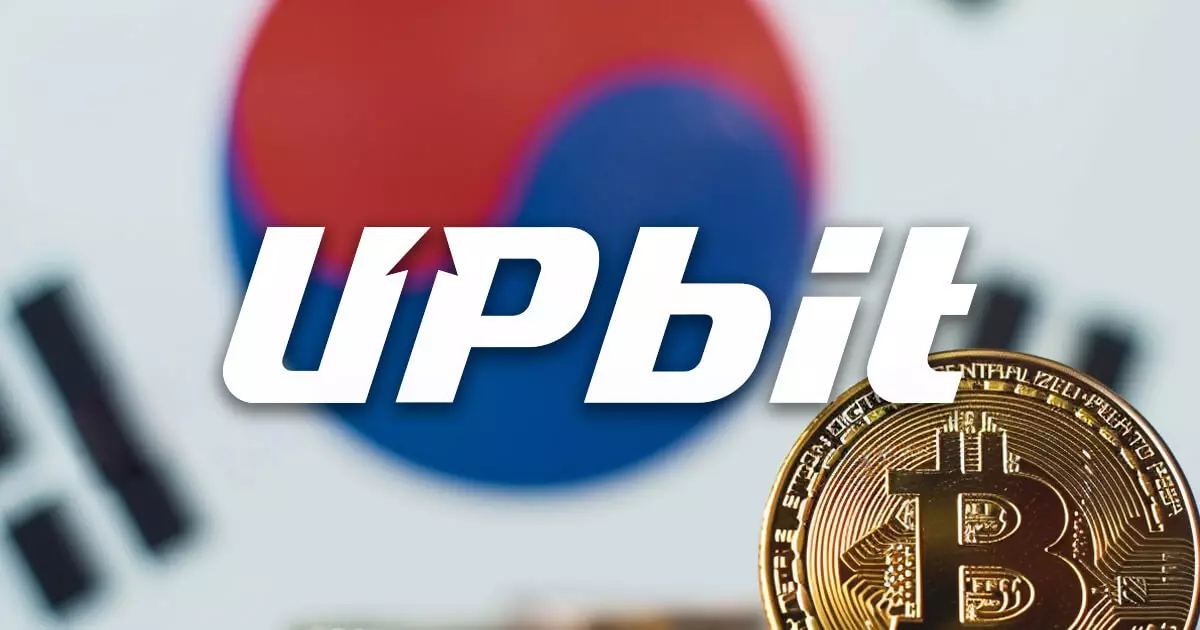In a critical move that could reshape the landscape of South Korea’s cryptocurrency market, the Financial Services Commission (FSC) has initiated an investigation into Upbit, the nation’s foremost crypto trading platform. The announcement, reported by einfomax on October 10, underscores growing apprehensions regarding Upbit’s considerable influence and its potential implications for financial stability. FSC Chairman Kim Byung-hwan acknowledged the urgency of examining how the virtual asset market’s reliance on Upbit might pose risks, especially amidst increasing scrutiny over financial transparency and governance.
Compounding these concerns is Upbit’s intricate relationship with K Bank, South Korea’s pioneering internet-only bank established in 2017. Lawmaker Lee Kang-il has voiced particular worries about this relationship, especially as K Bank gears up for a significant Initial Public Offering (IPO) aimed at raising 984 billion won (approximately $731.64 million). The prospect of this IPO being among the largest for 2024 adds to the pressure on regulatory bodies to ensure that the bank’s operations remain robust and without undue risk stemming from its ties to the crypto exchange. Currently, Upbit’s deposits represent a substantial portion of K Bank’s total deposits, amounting to nearly 20% of the bank’s 22 trillion won in total customer deposits. Such a heavy reliance raises alarms about the potential ramifications should there be disruptions in Upbit’s functionality.
Lee Kang-il explicitly cautioned that any operational hiccup at Upbit could catalyze a bank run at K Bank, jeopardizing financial stability. Additionally, he criticized K Bank’s strategy of offering attractive interest rates of 2.1% on Upbit customer deposits, labeling the rates as impractical given the challenges in maintaining profit margins. This critical viewpoint highlights a fundamental tension between the innovative financial products being offered and the traditional banking sector’s financial realities. Further complicating the situation, Lee argued that the close ties between Upbit and K Bank violate key financial principles, particularly the important tenet of separating financial operations and industrial affiliations.
In light of these developments, the FSC has committed to a meticulous examination of K Bank’s IPO process and its connection with Upbit. The Virtual Asset Committee—the oversight body for digital assets in South Korea—has also pledged to scrutinize the situation closely. This inquiry comes on the heels of a memorandum of understanding (MOU) signed by Dunamu (Upbit’s parent company), K Bank, and BC Card. This agreement aspires to create a cooperative model for digital financial services, merging Dunamu’s robust trading platform with K Bank’s mobile banking capabilities and BC Card’s payment processing systems.
This collaboration seeks to propel the evolution of South Korea’s digital finance landscape. However, it simultaneously amplifies the urgency for regulatory oversight to safeguard against potential systemic risks associated with such closely knit financial relationships. As investigations proceed, stakeholders in South Korea’s rapidly evolving financial ecosystem will be closely monitoring how the FSC navigates these intricate dynamics between innovation and regulatory compliance.

